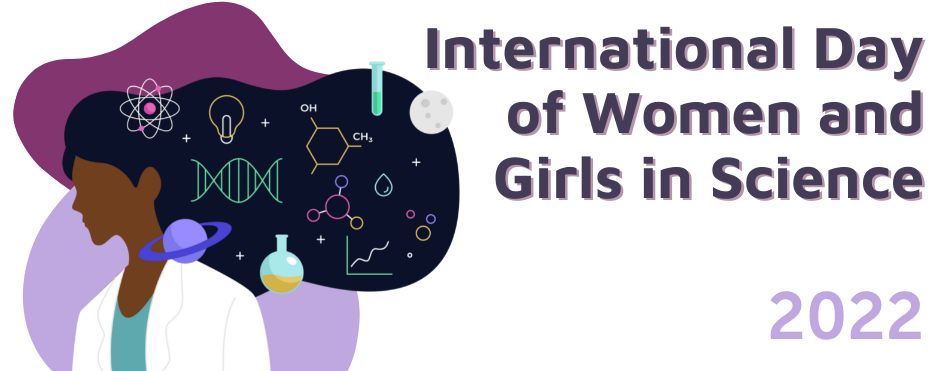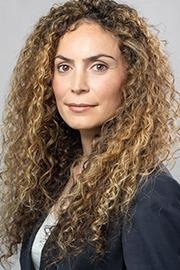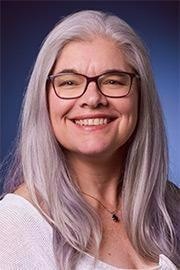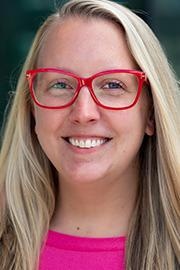Every year, the United Nations celebrates the International Day of Women and Girls in Science. For 2022, the focus of this day is not only the role women and girls play in STEM as beneficiaries, but also as agents of change.
AZoQuantum aims to share quantum and space science with the world and with people who can make a difference. Therefore, this year, we are highlighting a selection of women that are driving innovation in this field.

We asked each representative three questions exploring their journey into their careers, their thoughts on the future of their field, and the irreplaceable role of women in these spaces.
How did you come to be involved in the scientific community, and what advice would you give to young women and girls who are looking to start their careers within the STEM sector?
Lavinia Heisenberg is a professor of physics who was awarded the ETH Latsis Prize for her outstanding achievements in theoretical physics. She dreams of becoming an astronaut.
 Already during my childhood and school days, I realized that a technically or scientifically oriented education, with a corresponding professional career, would enable me to act based on logic and scientific expertise and work on an empirical basis.
Already during my childhood and school days, I realized that a technically or scientifically oriented education, with a corresponding professional career, would enable me to act based on logic and scientific expertise and work on an empirical basis.
I am convinced that we should try to impact education already in secondary schools, offer role models for girls, and motivate them to follow their dreams and passions.
Gretchen Benedix, Cosmic Mineralogist and Astro-Geologist at Curtin University
 My journey to the scientific community was a bit of an accident. I enjoyed Maths and Science in high school, but when I went to university I was going to study psychology. In my first term, I had to take a general science class and I took astronomy. This got me interested in Physics and so I switched gears. From there it was pretty much the research projects I did as an undergrad and post-grad that introduced me to science and the scientific community.
My journey to the scientific community was a bit of an accident. I enjoyed Maths and Science in high school, but when I went to university I was going to study psychology. In my first term, I had to take a general science class and I took astronomy. This got me interested in Physics and so I switched gears. From there it was pretty much the research projects I did as an undergrad and post-grad that introduced me to science and the scientific community.
I did several different research projects in my 3rd and 4th year at University. I also had a part-time job as a research assistant where I learned a lot of very simple data analysis using Excel and Word when they were first being used.
My main piece of advice would be to engage in research projects (either volunteer or internships) as an undergrad (or even in high school) to experience what doing research is and what it means to do science.
The scientific community is a rich environment and a lot of ideas can be discussed and knocked around which is what leads to great scientific ideas. Research can be very challenging, but it is very rewarding.
Amanda L. Joyce, Group Leader, Strategic Cybersecurity Analysis & Research at Argonne National Laboratory
 I work in the cybersecurity community and honestly, I got here by “complete accident”. I signed up for the wrong class in college. I was lost and way out of my league. After that first class, I was going to drop but the thing that stopped me was that the teacher assumed I couldn’t handle the course.
I work in the cybersecurity community and honestly, I got here by “complete accident”. I signed up for the wrong class in college. I was lost and way out of my league. After that first class, I was going to drop but the thing that stopped me was that the teacher assumed I couldn’t handle the course.
My goal was to prove him wrong. To this day, I’m so grateful for that nudge. He was my biggest advocate throughout school.
You need to be “incapable of discouragement”. Yes, that is a mouthful. What took me a long time to realize is that everyone gets a time to shine and yours will come - it just doesn’t always come when you want it. You need to be incapable of discouragement or being let down, time and time again.
You need to persevere past 'naysayers', the ones that put you down, the ones that don’t think you have it. You can prove you have it. You just have to believe in yourself.
Science, as well as gender equality, are both vital in achieving the UN's sustainable development goals, yet women still only represent 33.3% of the global research community. What more could be done to help women become more prominent in science in the future?
Lavinia Heisenberg is a professor of physics who was awarded the ETH Latsis Prize for her outstanding achievements in theoretical physics. She dreams of becoming an astronaut.
I feel a strong personal involvement in all matters regarding underrepresented gender minorities in science and would like to underline that women make a decisive contribution to scientific and technical progress. I see my professional career as a privileged opportunity to make an important contribution to the future of mankind and inspire young people and, above all, to motivate young women to embark on a career in science.
It is important to engage oneself in dedicated activities on this topic, especially those who can have an influence or have power.
In my position as a professor, I aim to involve women, especially from underdeveloped areas, in my research, enabling them to stay at places like the ETH. Unfortunately, my efforts are often met with resistance. For instance, it was always much easier to bring a female student from Italy than from Iran or India. Despite bureaucratic hurdles, one should actually make it easier for people from underdeveloped countries so that they can have equal opportunities!
Gretchen Benedix, Cosmic Mineralogist and Astro-Geologist at Curtin University
One thing I have noticed over my career is that young people, especially girls/women, really like science, and then something happens (usually around highschool) that makes it less desirable to do as a career. It may be that it is not thought of as a career option – that other areas (medicine, law, engineering, mining) are more likely to achieve stable employment with high salaries. I think this is where Science needs encouragement and understanding from political and industry leaders.
People who are in charge of designing primary and secondary curricula should include research as a viable and exciting career option. They need to see the relevance of pure science that may not have a specific commercial outcome, but that advances knowledge in ways that could lead to the next biggest thing.
Women In Science Encourage Young Girls: "You Belong In The STEM Fields"
Video Credit: Fast Company/Youtube.com
Albert Einstein figured out general relativity, without which GPS would not work, but he did not know that when he postulated it, nor did he even think about that as a potential outcome. He was focused on a weird question and had the patience to think it through and work it out mathematically. Only much later has it turned into a $10billion industry. So, that shows something about getting science to be more accepted, which I think will lead to more women being involved.
Getting more women to become more prominent in science also requires a shift in how gender is applied to anything.
Thinking is not gender-specific. Doing experiments is not gender-specific. Learning is not gender-specific.
I think that to make it more accessible we need to make it the norm for everyone – which might also include a shift in how it is taught. Creating internship/research opportunities for girls/women would also be a good way to get more interest.
For a woman to achieve ‘prominence’ in science, there also needs to be a shift in what counts toward reward. Many people want to have a family, but also want to do science. Sometimes child-caring can be allocated disproportionately to women – there needs to be a structural change in how parenting is treated when it comes to any job, but academic jobs in particular.
A lot of this comes from what I experienced as a young female researcher. I need to point out that, at least here in Australia, a lot has changed which makes things better for women in science in terms of the general progression in a science role. Research experience is rated relative to opportunity, with career interruptions acknowledged to allow equal footing for women (and all parents) to find balance. This method could be introduced globally to achieve gender equity in scientific fields.
We’ve come a long way, but there is always room to consider what else we can do to achieve equity.
Amanda L. Joyce, Group Leader, Strategic Cybersecurity Analysis & Research at Argonne National Laboratory
Better programming at a younger age and throughout school. Growing up, we saw doctors, scientists, lawyers, etc. all on tv and want to be like them, but we never really “see behind the curtain”. Argonne’s Women in Science and Technology (WIST) offers programs to young women through 'Introduce a Girl to Engineering Day' and 'Science Careers in Search of Women', which seek to bring 8th graders and high schoolers respectively to Argonne to see the STEM fields up close and personal.
There are Girl Scouts that seek to help young girls better understand various areas of STEM and life skills, but these programs are only some and not always available to everyone, which leaves a gap and shortfall.
In recent years we have seen some incredible advancements in physics, from quantum computers to astrophysical discoveries; are there any stand-out developments that have excited you, and how do you expect your particular field to evolve in the next ten years?
Lavinia Heisenberg is a professor of physics who was awarded the ETH Latsis Prize for her outstanding achievements in theoretical physics. She dreams of becoming an astronaut.
There are still so many unknown questions in my field. How can we finally better understand the dark and extreme side of the Universe? Are there such things as dark matter and dark energy and if yes what are their fundamental properties? What is the underlying fundamental theory of gravity? How do massive objects like black holes form and interact with their environment? What can we learn about astrophysical phenomena using gravitational observations? The key to answering them will be Gravitational Waves.
Gretchen Benedix, Cosmic Mineralogist and Astro-Geologist at Curtin University
Probably one of the biggest areas in my field that could expand in the next 10 years is the search for life in our solar system and the universe. I think the most exciting discoveries over the last 20 or so years have been the detection of 1000s of planets around other stars in our galaxy and, by inference, the universe. It is only a matter of time before we figure out more about the existence of life beyond earth. It requires a lot of technological know-how to get at this information, but I feel that it’s within our grasp.
Read our previous interview with Gretchen Benedix: Entering Orbit: Asteroid 4460 Nereus
Amanda L. Joyce, Group Leader, Strategic Cybersecurity Analysis & Research at Argonne National Laboratory
Wow, what a big question! Cyber evolves daily. I am not even sure I want to predict 10 years from now. I would love for cybersecurity to get less reactive and more proactive, or minimally more in the moment. We currently tend to see attacks and issues and are running around trying to put the fires out and spending tons of time identifying how to fix that hole while the “bad guys” are already working a new hole. It’s a game of cat and mouse.
With a new generation of capable scientists and engineers, I hope that we can not only work to fix what happened but start to inch that line closer and closer to where those “bad guys” really start to sweat, where we are only a step behind them.
Banner Image Courtesy of AZoNetwork with Material from plataa/Shutterstock.com